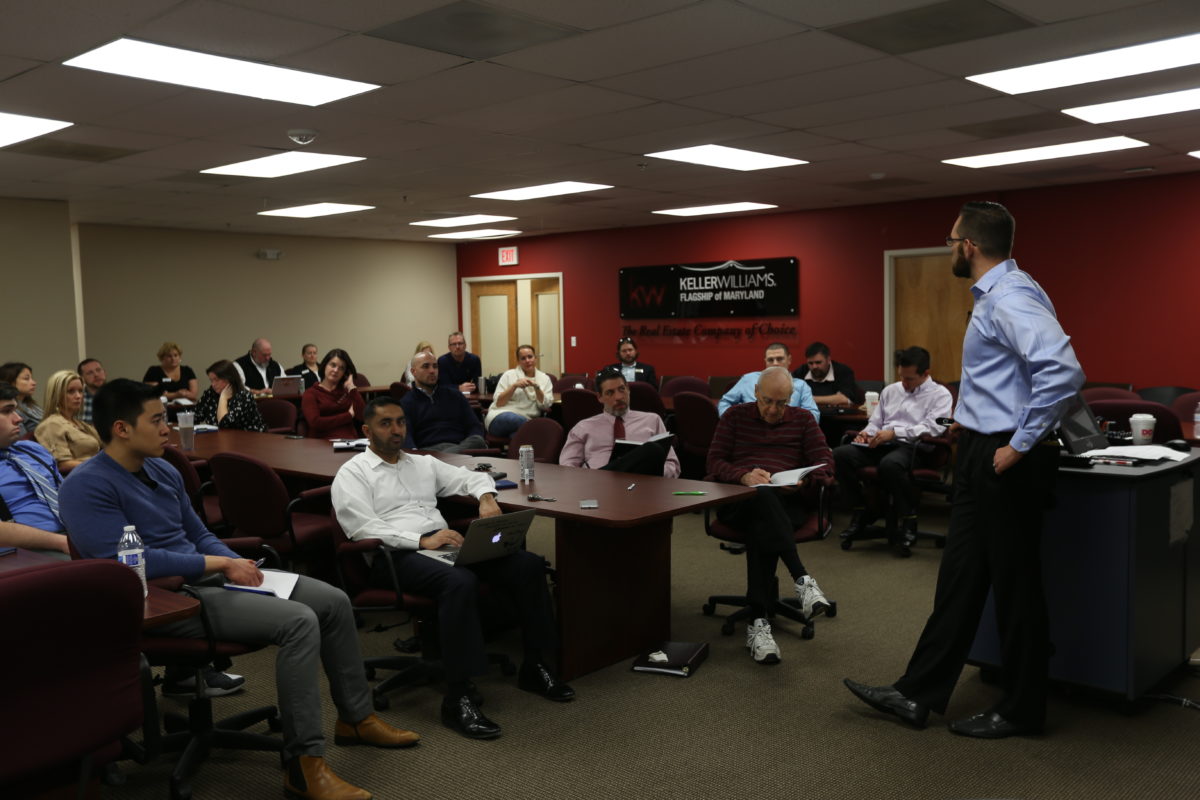
08 Feb The A Team
What Is So Important About Talent?
Christopher Hart from Transforming Lives Coaching and Consulting. And so welcome to our daily Lead Strong Leadership video series where we’re looking to equip leaders to be stronger leaders in our businesses, our organizations, and even in our lives.
And so last couple days we’ve been talking about this word called ‘Talent,’ and how does talent apply to growing our organization; how do we identify talent; how do we attract talent, et cetera. And so we established what’s called the talent code. The talent code that I use to evaluate individuals and assess, not for judgment purposes but for hiring purposes is to look at two key components, intellect and skill. And so we just understand that T equals I plus S if you’re joining me for the first time you don’t really know what that. Go back into my news feed here on Facebook and just take a look at those two videos, the last two videos that we did and that’ll give you more in-depth understanding to that.

Chris with Robert Kiyosaki (Author of Rich Dad Poor Dad)
So today is a little bit different, it’s on the same realm of understanding talent. There’s another component to talent that is not part of my talent code but it’s more of like I think I would call it the DNA, and I learned this concept from a very interesting individual by the name of Keith Cunningham. And for those that don’t know, Keith Cunningham is referenced as the rich dad in Robert Kiyosaki’s Rich Dad Poor Dad, and when I heard him speak on this topic and then I had the opportunity to be able to meet him and have a conversation a little bit further with him, to me, I don’t want to say it was like life-altering, but it was very impactful and I walked away from that conversation going “I will never build or hire again outside of this concept that I learned.” And it’s about building an A team, you’ll remember from the 80’s B.A. Baracus and his people, the A team…yeah this has nothing to do with that, but just thought I’d reference that and kind of reveal my age.
What ever happened to Mr T?
How many people remember the A team that are watching? If you remember the A Team, that show, just hit Like or whatever, if not, just continue to do what you do. Anyway so the A Team concept it’s about hiring A players; and his interpretation…not interpretation, but his identification of …yeah… I knew you would…his identification of what an A player is is someone who has a high emotional need to achieve, a high emotional need to succeed. So what does that look like? These are people that internally to them, their DNA just breathes the need to succeed. These are people that walk around like, I think you know I use myself as a reference, I’ll be the first one to admit I’m the biggest sore loser, I hate to lose, and there’s people out there that have judgments on that, and that’s fine, but you know to me why do I hate to lose? I hate to lose because I have a high emotional need to succeed, and if I don’t succeed I’m losing, and that’s why I hate losing because if I feel like I’ve lost then I didn’t succeed. And so we’re going to dig into this today and we’re going to really understand this high emotional need to succeed and then realize like this is an element that we want to evaluate and assess people against in our hiring processes.
And so one thing you want to be clear about, when we talk about hiring process is there’s two components to it, there’s hiring new individuals to your team, and the people that are already on your team. I think one of the worst things a leader can do is create an environment where people on your team feel like they’re not always earning their job. I think if you look at probably one of the…look I have to say this, probably one of the people that I respect the most as a leader in sports is Bill Belichick, and I know for those that know me, that really hurts to say that. I mean but just from a leadership side I really respect the individual because if you understand how he runs his team, I mean look what happened the other day, somebody wanted… one of his defensive players wants big money, what does he do? He gets traded, next man up; and we don’t care how good you are, understand you’re always going to earn your job here.
And so I think that’s what we have to look at with our people too is that we don’t let them believe that just because they have a job with us that they just automatically remain hired, I think they have to earn their job every single day, every single week, because once they get comfortable like that that’s when people stop performing; why? Because it’s a comfort zone, your whole brain is designed to keep you in a comfort zone, it’s called your homeostasis process, and once you get there the brain goes, “Alright I’ve done my job, stabilize; stay right here, it’s exactly where I needed to take you.” So a lot of times people they’ll have an emotional need to succeed or a desire to succeed but they get trapped in that comfort zone, and we as leaders need to make sure that we’re continuing to push them past that comfort zone.
So when we look at the hiring …when we say hiring I want you to understand it’s not just about how do we have evaluate people that we’re trying to bring onto our team but it’s also evaluating people that are already on our team. And we look at it from a perspective of do they have a high emotional need to succeed? And any time I teach or educate some of my clients on this, one of the common questions I get is “Chris how do you know, like what questions do you ask that reveals that?” And my answer to that every time is it doesn’t matter, you can ask any question relative to success because here’s what I believe, people who have a high emotional need to succeed they have patterns of success, it’s not just a isolated event, it’s events throughout their lifetime, I mean it goes back to like grade school, they just always hated to lose. Like I have three children and two of my children are like so competitive it’s ridiculous, they just… they can’t stand losing at anything. You want to get them to do something, you want them to go take a bath say “Alright guys come on it’s time to go take a bath,” and like ugh! “First one in the bathtub is the winner,” Ping! They’re right up stairs.
That’s a high emotional need to succeed, they want to be first, they want to win in everything they do, and so it’s real easy for them to express that to you. I mean it shows up in everything from I was…sorry we’re having intermittent Internet issues… so you know it shows up everything from “I was the chess club president and champion in my elementary school.” And you’re like “What?” Like “Yeah, I love chess, I was on the chess club, I had to be first, I was the president and I won.”
So it shows up in everything they do, in the sports that they play, the hobbies that they participate in and the things that they just do in life, like those are the people that cut you off in traffic just to get ahead of you, it’s not like they’re getting anywhere any faster, they just have to get ahead of you. Those are people that have a high emotional need to succeed. So when we’re looking at our hiring process and we’re evaluating people that’s what we’re listening for. You guys are smart enough, we know what questions to ask people. “Hey tell me about a time where you were successful in your life. Tell me about a time where you joined something, did it for the first time and you just succeeded at a high level.”
They’re like “Where do I begin?” I think the hardest thing for them when you ask that type of question is “What example should I give this person? Should I tell him when I was chess club president in like sixth grade or should I tell them about my military career or…” You know they don’t know where to start so they’ll just tell you one thing and they may never shut up, and that’s okay too.
It is about building a team.
So when we’re building our team, not only are we just looking …when we’re building our organizations not only are we just looking for talent, because I believe talent…you know there may be an element of talent, the I plus S equals T formula that I talked to guys about, there still is I believe maybe an element that could be the fact that they’re missing that emotional need to succeed. They achieve because they can, they have the capability, they’re intelligent, et cetera, but they still have ceilings of achievement because they’re missing that one piece of DNA.
And so I believe that if you can find those people that have a high emotional need to succeed those are people that make leading easier, and it’s not that you have to poke and prod them to show up and do what they’re supposed to do day in day out, they’re going to do it. Your job as a leader is how do you stretch them? How do you grow them? How do you put them in front of opportunities that’s going to stretch and grow their career based off of what they want in the long term? Because here’s the thing, I think it’s great, I think it’s a great concept to build an organization and businesses around… or build your world, your empire, your world, whatever you want to call it, I think it’s a great concept to say “Oh yeah I’m going to build my world, my business, my organization around A players.”
But here’s the thing, A players come with a special sauce to them, they don’t necessarily conform to rules so you have to be willing to stretch yourself; you have to be willing to grow yourself; you have to be willing to grow your leadership lid because if you don’t they leave you, because they don’t need you. At the end of the day they don’t really need you, what you’re going to attract them to, like we said yesterday, is that my business, my organization, my leadership is going to provide you the tools that you need to grow exponentially and if you don’t show up in that realm, they leave you because they don’t need you because they have a high emotional need to succeed. They know they’re going to succeed in spite of you.
So the question then becomes what do you as a leader need to do in order to attract those people that have a high emotional need to succeed? Well I think you have to have a high emotional need to succeed yourself. And here’s the thing, how do we determine high emotional needs to succeed and like where does that come from? How do we tap into it?
It goes back to one of the elements of psychology where there’s only two driving forces of emotion that move all people, it’s the force of movement towards pleasure and away from pain, and the reality is more people will move away from pain than they will towards pleasure. Whichever one you operate in you need to tap into that resource, that resource is what’s going to drive you and every other individual. I believe that people who have a high emotional need to succeed are just really connected to that resource that drives them either from …you know someone that I spoke to recently who said “You know I worked in a factory for 15 years, 16 hours a day and I’ll never do that again.”
To someone like myself who just felt the need to succeed because of whatever they dealt with in life, they’ve just always wanted to succeed, they’ve always had to work their butt off to be at that top level and it’s just conditioned into them, and that’s a movement towards pleasure. The first example I gave you was a movement away from pain.
So tap into that resource within you first and allow that to be your driving motivational force to succeed. And I believe once you do that you’re going to want to be around other people that do the same and you’re not going to tolerate people who…look we live in a world today where there’s 47 million Americans on government subsidy, our country has done a great job of making people comfortable and I believe we live in a world today where Americans are spoiled, and I’m not trying to be controversial, I’m just saying look it’s just is the way it is.
And so there’s a lot of people that are going to show up in your world, that’ll do just enough to get by or they’ll have expectations of, “The world owes me something.” You see that the millennials today. So trying to find these people that have emotional needs… high emotional need to succeed, they are the needle in the haystack so you don’t have to look hard. It’s not one of those things you’re going to talk to 10 or 15 people; or you’ll interview five or six of them and you’ll find them and then the world’s going to be a wonderful place, it doesn’t work like that. You have to discipline your patience in this process of building an organization of great people, because understand something, as much as you want that great person, look around you, so does everyone else. And the reality is that great person probably already has a job, already has a career, so it now becomes having to find them, having to determine that and then having to influence them as to why they should make a change in their life and come join you.
And so as we start to put all these pieces together understand something, Level Two leadership, lead by self, is critical, it’s absolutely critical to building an organization that’s going to have unlimited potential and that’s going to change the world in some great fashion. Why? Because without doing that you don’t become that person that’s going to attract either that talent or that A player that you need in your organization.
And then the second level, lead another, you’re going to have to learn how to lead that person on a one-on-one basis to understand that yes they can succeed without me, we have an interdependent psychology but I still have to show up and stretch them and lead them and grow them and provide opportunities for them. Sorry that it keeps timing out, it’s probably my internet. If I have to do it again then I’ll do it again later. So just understand that those two components as we start to take shape in growing our leadership through these various different levels, this is how it all starts to tie in.
So if there’s anything I can assist you with in your own leadership growth, Level One leadership…or Level One leadership of be a great follower; Level Two of lead by self; Level Three, lead another; Level Four, lead multitudes; Level Five, the pinnacle, which is lead leaders that lead leaders; I mean there’s anything I can help you out with please feel free to reach out to me. You can either Facebook message me, you can e-mail me at Ch***@tr***********************.com.
I’d love to hear some of your ahas as long as you are able to see them or hear them because I know the Internet has been in and out today so I apologize about that. So just remember one thing, you’re a child of God, God loves you, so do I. Have a powerful day, lead strong. Have a great rest your day. Be blessed.
About the author:
Over the course of 8 years, Christopher Hart went from an enlisted Private First Class to a Commissioned Officer-Captain. In 2005, Christopher chose to move on from his military career to focus on starting a family and embarking in the world of entrepreneurship. Christopher’s passion is now working to help others be the BEST version of themselves and helping them Lead others to the same!
To learn more about Christopher Hart or to get in touch with him regarding a coaching program you can email him at Ch***@Tr***********************.com

No Comments